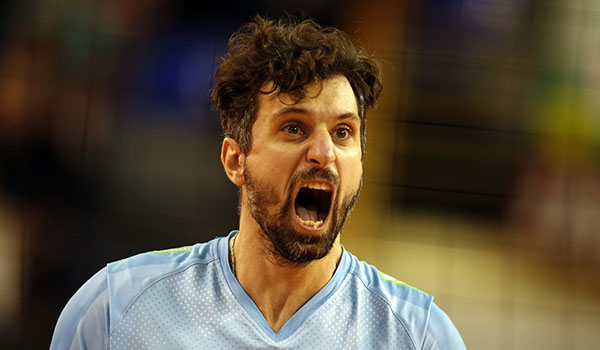Some new details in regard to the doping case of a former Russia Men’s Volleyball National Team member, Aleksandr Butko, have emerged.

The Olympic champion in 2012, Aleksandr Butko, has been awaiting a verdict in the case of the use of a banned substance found in his 2014 doping test for six months now. The player’s agent, Dmitriy Rezvanov, and the Secretary General of the Russian federation (VFV), Aleksandr Yaremenko, both said that it wasn’t hard doping that was found at Butko. At this point, it looks like a medical error. The exact name of the banned substance found in a sample of a 36-year-old setter is still not known. According to Yaremenko, the drug most likely got into the body from contaminated dietary supplements. Rezvanov was more specific, saying that a certain analog of meldonium, which is contained in a drug prescribed to maintain the heart muscle after exertion against the background of acute respiratory infections, was found.
Butko’s doping history has never been hidden. It was included in all cards – both internal and those that were submitted to the Russian Anti-Doping Agency (RUSADA). The substance found at Butko was added to the list of banned substances exactly the year when the ex-member of ‘Zbornaya’ took it. Both the agent and the official of the federation noted that Butko took pills as prescribed by the club doctor. Professional players themselves are responsible for all the drugs they take, but in fact, they rarely study their chemical composition, usually relying on the competence of doctors. Probably, in this case, the Lokomotiv physician made a mistake by using a drug that was recently added to the banned list.
Yaremenko stressed that VFV is trying to reach an agreement with the International Volleyball Federation (FIVB) and reduce the punishment to a minimum. The athlete himself didn’t deny the fact of doping but denied it was his fault. At that moment, the punishment for this drug seemed to be up to three months; that period added to six months during which Butko has been inactive awaiting the resolution of the case, totals nine months of disqualification – that if Yaremenko’s claims are true.